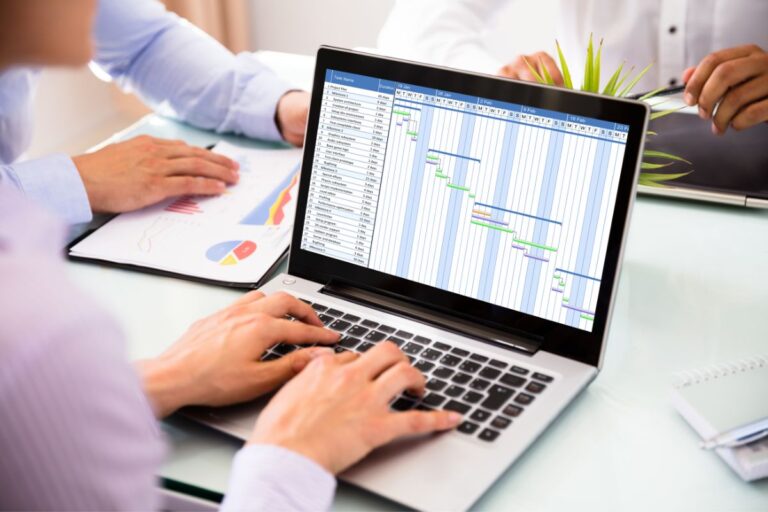Time management is essential in the fast-paced hospitality industry. Operations managers in restaurants, resorts, hotels, and food and beverage companies know that quickly and smoothly handling tasks helps elevate the guest experience.
But how can busy operations managers streamline their to-do lists when there are only so many hours in the day? We’ve rounded up the best technology options that can help you increase operational efficiency, simplify project management, and save time.
Five Tools That Add Time Back to Your Day
Scheduling employees, booking reservations, calculating payroll, and overseeing ongoing projects and events are just some of the responsibilities that can sneakily take up a lot of your time.
Let’s review just a few tools that can help you spend less of your day manually completing tasks so you can spend more on excellent guest experiences.
1. Shift Planning Software
Piecing together a shift schedule can feel like an impossible puzzle to complete. But tools like When I Work and Deputy make it easier to create, manage, and share employee schedules.
These tools also improve communication between staff, accurately track timecards, and make it easier for your HR team to quickly process payroll – making it a win-win for multiple teams. For example, staff can communicate with one another directly through the software to find shift swaps, give kudos, or ask questions. Integrate with your other systems for even better results!
2. Restaurant Reservation and Booking Systems
In this day and age, guests expect to be able to book dinner reservations online. Instead of spending your precious time on the phone or in your inbox, consider OpenTable or Resy.
These easy-to-use platforms maximize seatings and set up restaurants for a successful shift. And of course, it takes one more thing off your already full plate.
Plus, by putting the guest in control of scheduling their reservation, they’re able to easily update, reschedule, or cancel, which creates a seamless experience even before they dine.
3. Event Collaboration and Design
Instead of juggling multiple email threads and being the liaison between teams, event diagramming is the easiest way to pull every single stakeholder into one visual platform for easy collaboration.
Cvent’s Event Diagramming software unites coworkers and allows them to execute events with ease by keeping all parties abreast of updates and changes along the way.
4. Contactless Hotel Check-Ins
In recent years, contactless check-in technology has gained popularity, and it’s here to stay because of the added efficiency and top-tier guest experience.
Canary Contactless Check-In allows guests to securely enter personal information (like identification and payment method), speeds up the check-in process, and cuts down on time at the front desk. It’s a win-win for hospitality employees and guests.
5. Guest Experience Management Platforms
Sifting through reviews, positive and negative, then identifying themes can be overwhelming and daunting. Fortunately, guest feedback technology like Medallia uncovers meaningful feedback and keeps a pulse on guest expectations.
And when you’re able to implement strategic changes based on real customer data, you promote brand loyalty and elevate the guest experience.
Hospitality Project Management Tools: How to Choose
Nowadays, there are tons of options when it comes to software that can help you track projects. And it’s clear why so many tools exist: They help alleviate project management stress by synchronizing all the information, people, deadlines, task dependencies, and benchmarks in one easy-to-track place.
Whether you’re managing a remodel, creating a new staff training, implementing a customer relationship manager system, or just want to track your personal tasks and goals, project management software like Smartsheet, Monday.com, Asana, or Airtable can help.
Choosing the right platform for you depends on a few factors:
-
The scale of your operation. Do you need a tool that has the capacity to manage a wide variety of projects between multiple departments, or can you use the tool with fewer fancy features?
-
Budget for technology. If your company doesn’t have a large budget for technology, consider a tool that has a free version (usually with limited capabilities or a smaller number of users).
-
Team size and comfort level with technology. How many people will need to use the software and how easily will they be able to use it? A collaborative tool isn’t useful unless everyone successfully adopts it.
Ultimately, the best choice is the tool that you can easily implement and quickly learn.
Want More Tips for Time Management, Project Management, and More?
Download this pack of four infographics to help you further maximize your efficiency as an administrative professional.

